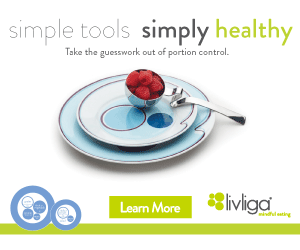There are so many good resources out there. I love roaming the internet for good tips and new information. Sometimes, though, it is nice to be reminded of some long standing resources that continue to provide updates and good guidance. This excerpt came from a recent newsletter for the American Heart Association. I signed up for it and its free! In fact, they have many to choose from.
I want to get back to doing Yoga again. It is going back on my calendar today! Here is why:
"Traditional yoga is done by slowly stretching the body into a variety of poses while focusing on breathing and meditation. “Yoga is designed to bring about increased physical, mental and emotional well-being,” said M. Mala Cunningham, Ph.D., counseling psychologist and founder of Cardiac Yoga. “Hand in hand with leading a heart-healthy lifestyle, it really is possible for a yoga-based model to help prevent or reverse heart disease. It may not completely reverse it, but you will definitely see benefits.”
| | AHA Recommendation for Physical Activity
For overall health benefits to the heart, lungs and circulation, perform any moderate- to vigorous-intensity aerobic activity using the following guidelines:
- Get the equivalent of at least 150 minutes of moderate intensity aerobic physical activity (2 hours and 30 minutes) each week.
- You can incorporate your weekly physical activity with 30 minutes a day on at least five days a week.
- Physical activity should be performed in episodes of at least 10 minutes, and preferably, it should be spread throughout the week.
- Include flexibility and stretching exercises.
- Include muscle strengthening activity at least two days each week.
| |
Yoga can be used to improve heart health as a preventive measure or after facing a cardiac event, said Cunningham, who has taught yoga for 40 years and is also president of Positive Health Solutions.
Why yoga?Thinking prevention? As part of an overall healthy lifestyle, Cunningham said yoga can help lower blood pressure, increase lung capacity, improve respiratory function and heart rate, and boost circulation and muscle tone. It can also improve your overall well-being while offering strength-building benefits.
Yoga also has proven benefits for those who have faced cardiac arrest, heart attack or other heart event, according to Cunningham. “The acute emotional stress of such an event certainly has a significant and adverse effect on the heart,” she said. “That’s where yoga can be a tremendous benefit to manage the stress.” For example, Cunningham said that half of bypass surgery patients go through depression, facing emotions ranging from anxiety to grieving. “All these things come into play when you’ve got a potentially chronic disease to manage for the rest of your life.”

The calming benefits of yoga may help with that — and you may see benefits right away. After your first yoga class, your blood pressure will likely be lower, you’ll be relaxed and you’ll feel better, Cunningham said.
Long-term, sustained yoga may play a role in improving overall health, according to Cunningham.
“The more energy you put into it, the more you’re going to get out of it,” she said. “After 12 weeks, you may see a dramatic increase in exercise functionality, and blood pressure and cholesterol levels may decrease.”
If you have heart disease, diabetes or are obese, check with your doctor before starting a yoga program. “I highly recommend going to a qualified and trained cardiac medical yoga instructor,” Cunningham said. To find an instructor in your area, check with your local cardiac rehab center or visit cardiacyoga.com."



























